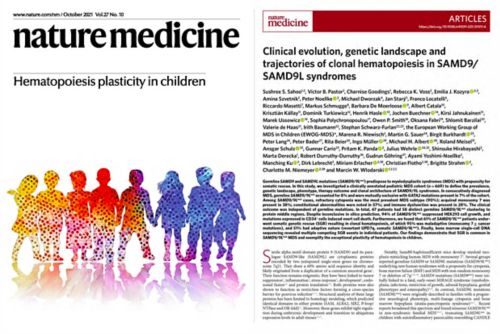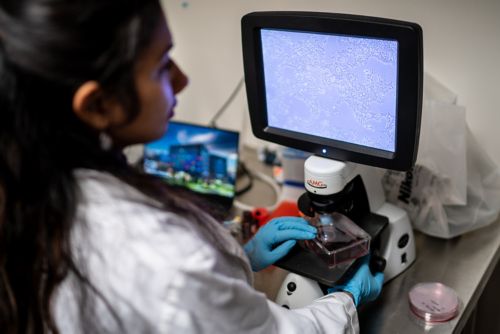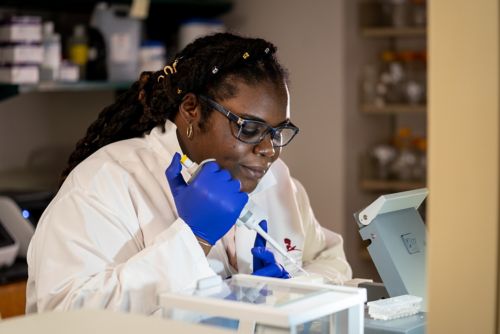St. Jude Family of Websites
Explore our cutting edge research, world-class patient care, career opportunities and more.
St. Jude Children's Research Hospital Home

- Fundraising
St. Jude Family of Websites
Explore our cutting edge research, world-class patient care, career opportunities and more.
St. Jude Children's Research Hospital Home

- Fundraising
About the Wlodarski Lab
Pediatric myelodysplastic syndrome is considered a rare disease and distinct from its adult counterpart. Our lab has identified specific genetic mutations that are inherited in cases of pediatric MDS. We are working to better understand genetic predisposition, clinical patterns of disease, and mechanisms for progression as well as somatic genetic rescue. Additional research is focused on the etiology and pathology of bone marrow failure syndromes. We are conducting basic research and clinical studies with the hope of improving diagnosis and treatment.

Read more about genetic rescue in pediatric MDS.
Our research summary
The research in our laboratory follows two lines of investigation – one involving the evolution of pediatric myelodysplastic syndrome (MDS) and the other focusing on the genetics of new bone marrow failure syndromes.
In pediatric MDS, up to 20% of cases are caused by inherited mutations in GATA2 and SAMD9/SAMD9L genes. We are working to identify new genotype-phenotype correlations through functional experimentation in cell lines and mouse models. Our laboratory also studies large cohorts of affected patients in collaboration with a unique multinational and multi-institutional consortia to discover the full spectrum of mutations that drive MDS. We established a research database to register and collect information on the genetics and clinical phenotypes associated with the SAMD9/SAMD9L mutations. We are aiming improve the clinical outcomes of patients with MDS by identifying the factors and biomarkers that predict patient outcomes.

The other major line of investigation in our laboratory explores the genomics of bone marrow failure syndromes through our leadership on the INSIGHT Protocol for Hematologic Diseases. This study collects and stores bone marrow and blood samples of patients with marrow failure syndromes as well as their family members. INSIGHT involves the creation of induced pluripotent stem cell lines from patient samples to help accelerate diagnosis and gene discovery as well as illuminate patterns of disease.
Our research is highly collaborative in nature, both with colleagues at St. Jude and with external partners, particularly the European Working Group of MDS in Childhood – a consortium of almost 30 countries collecting data and samples on these rare diseases – and the North American Pediatric Aplastic Anemia Consortium, which involves more than 50 U.S. institutions developing a registry for pediatric MDS.
We employ a variety of methodologies to support our research, including mouse and iPSC disease modeling, CRISPR/Cas9-based genome engineering, and single cell proteogenomics, among others. Leveraging these technologies and building upon our research program, our laboratory aims to eventually move toward functional discovery, modeling the genes we find on a multiplex scale to identify prognostic factors, genetic factors, and disease modifiers and ultimately impact these diseases with pharmacological therapies.

Selected Publications
Contact us
Marcin Wlodarski, MD, PhD
Experimental Hematology
MS341
St. Jude Children's Research Hospital
Follow Us

Memphis, TN, 38105-3678 USA GET DIRECTIONS